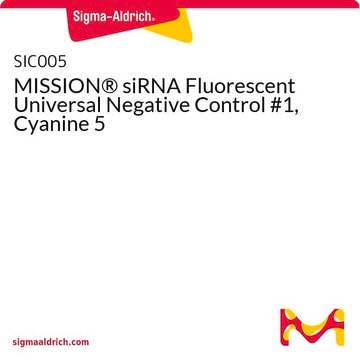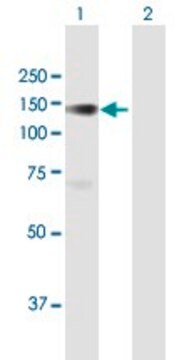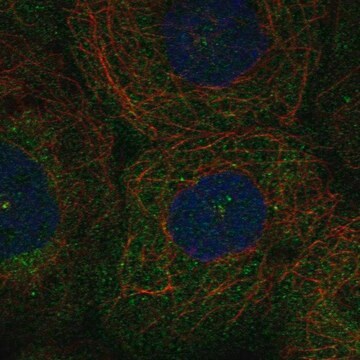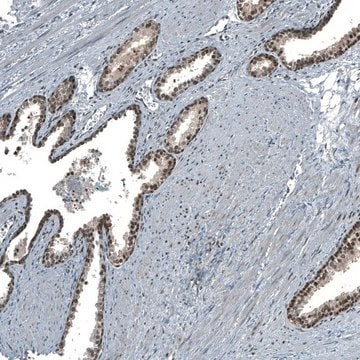MABC544
Anti-PLK-4 Antibody, clone 6H5
clone 6H5, from mouse
Synonym(s):
Serine/threonine-protein kinase PLK4, Polo-like kinase 4, PLK-4, Serine/threonine-protein kinase 18, Serine/threonine-protein kinase Sak
About This Item
Recommended Products
biological source
mouse
Quality Level
antibody form
purified immunoglobulin
antibody product type
primary antibodies
clone
6H5, monoclonal
species reactivity
human
technique(s)
immunocytochemistry: suitable
immunoprecipitation (IP): suitable
western blot: suitable
isotype
IgG3κ
NCBI accession no.
UniProt accession no.
shipped in
wet ice
target post-translational modification
unmodified
Gene Information
human ... PLK4(10733)
General description
Immunogen
Application
Immunoprecipitation Analysis: A representative lot immunoprecipitated PLK-4 in HeLa cell lysates cotransfected with Flag-tagged Gcp6 and Myc-tagged Plk-4 (Bahtz, R. et al. (2012). J Cell Sci. 125 (Pt 2): 486-496).
Apoptosis & Cancer
Apoptosis - Additional
Quality
Western Blotting Analysis: 4.0 µg/mL of this antibody detected PLK-4 in 10 µg of U2Os cell lysate.
Target description
Physical form
Storage and Stability
Analysis Note
U2Os cell lysate
Other Notes
Disclaimer
Not finding the right product?
Try our Product Selector Tool.
Storage Class Code
12 - Non Combustible Liquids
WGK
WGK 1
Flash Point(F)
Not applicable
Flash Point(C)
Not applicable
Certificates of Analysis (COA)
Search for Certificates of Analysis (COA) by entering the products Lot/Batch Number. Lot and Batch Numbers can be found on a product’s label following the words ‘Lot’ or ‘Batch’.
Already Own This Product?
Find documentation for the products that you have recently purchased in the Document Library.
Our team of scientists has experience in all areas of research including Life Science, Material Science, Chemical Synthesis, Chromatography, Analytical and many others.
Contact Technical Service







